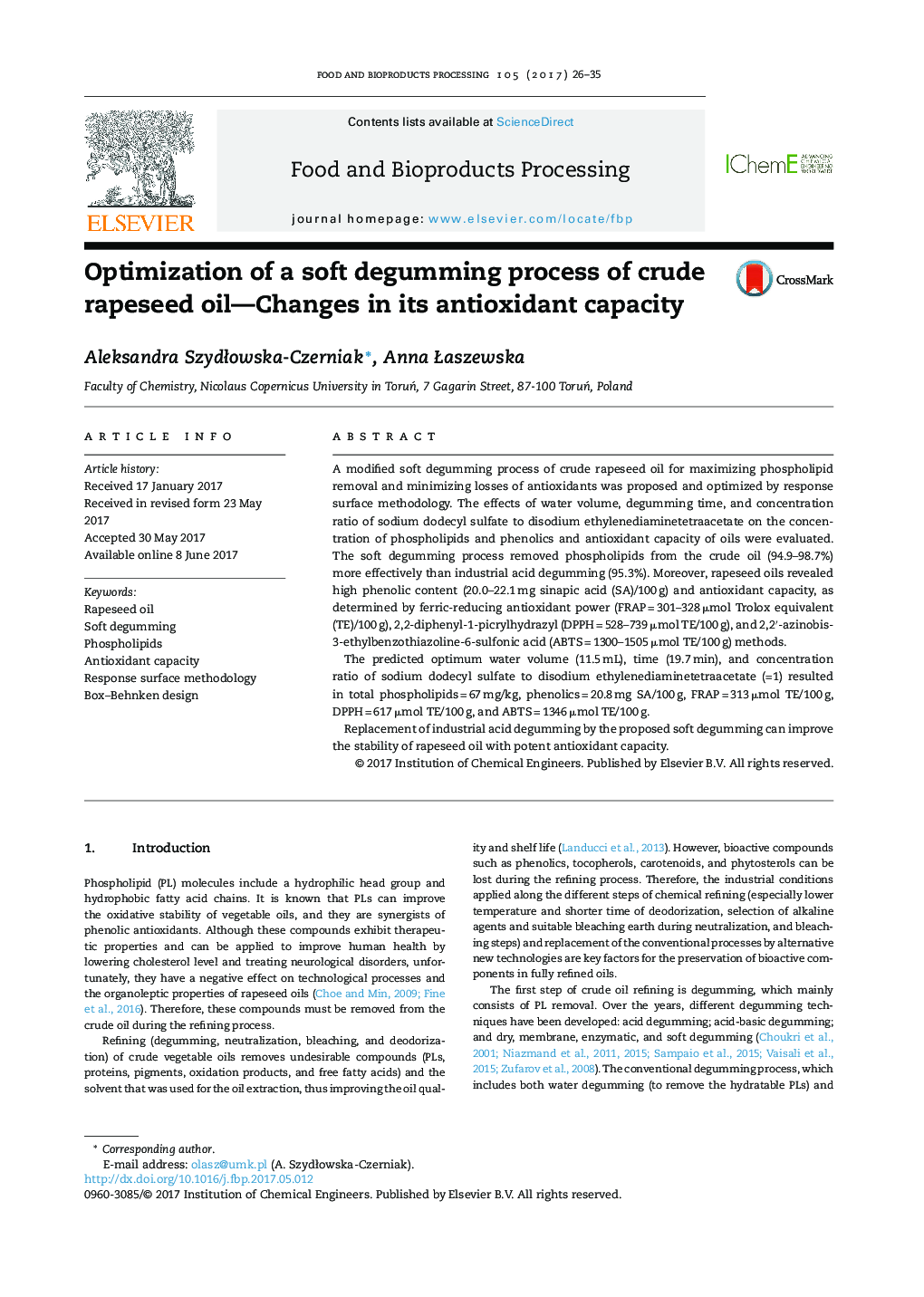| Article ID | Journal | Published Year | Pages | File Type |
|---|---|---|---|---|
| 4753012 | Food and Bioproducts Processing | 2017 | 10 Pages |
â¢A modified soft degumming was proposed as the first step of oil refining process.â¢Efficient removal of undesirable phospholipids from the crude oil was achieved.â¢Soft degumming protects antioxidants in comparison with industrial degumming.â¢Soft degumming conditions were optimized by response surface methodology.â¢Chemical agents, water volume, and time affected the efficiency of soft degumming.
A modified soft degumming process of crude rapeseed oil for maximizing phospholipid removal and minimizing losses of antioxidants was proposed and optimized by response surface methodology. The effects of water volume, degumming time, and concentration ratio of sodium dodecyl sulfate to disodium ethylenediaminetetraacetate on the concentration of phospholipids and phenolics and antioxidant capacity of oils were evaluated. The soft degumming process removed phospholipids from the crude oil (94.9-98.7%) more effectively than industrial acid degumming (95.3%). Moreover, rapeseed oils revealed high phenolic content (20.0-22.1 mg sinapic acid (SA)/100 g) and antioxidant capacity, as determined by ferric-reducing antioxidant power (FRAP = 301-328 μmol Trolox equivalent (TE)/100 g), 2,2-diphenyl-1-picrylhydrazyl (DPPH = 528-739 μmol TE/100 g), and 2,2â²-azinobis-3-ethylbenzothiazoline-6-sulfonic acid (ABTS = 1300-1505 μmol TE/100 g) methods.The predicted optimum water volume (11.5 mL), time (19.7 min), and concentration ratio of sodium dodecyl sulfate to disodium ethylenediaminetetraacetate (=1) resulted in total phospholipids = 67 mg/kg, phenolics = 20.8 mg SA/100 g, FRAP = 313 μmol TE/100 g, DPPH = 617 μmol TE/100 g, and ABTS = 1346 μmol TE/100 g.Replacement of industrial acid degumming by the proposed soft degumming can improve the stability of rapeseed oil with potent antioxidant capacity.
Graphical abstractDownload high-res image (180KB)Download full-size image
